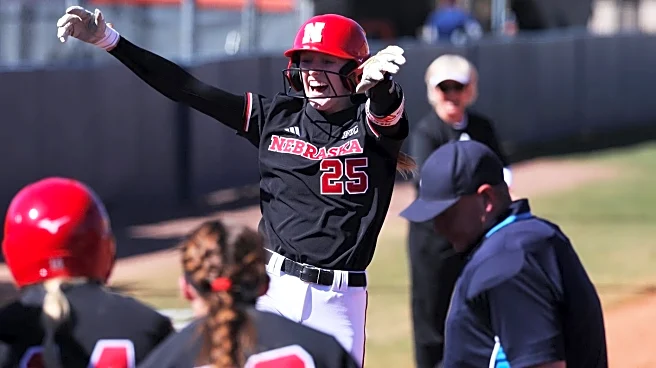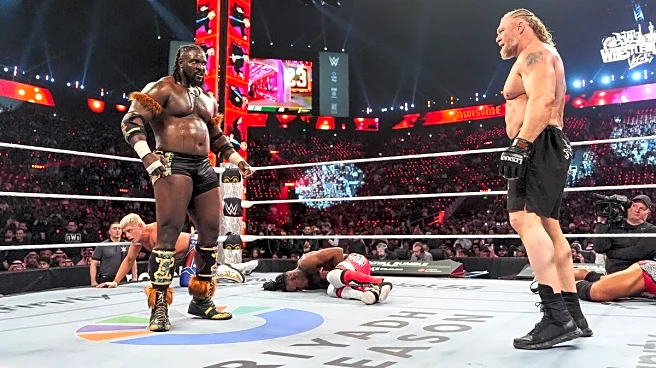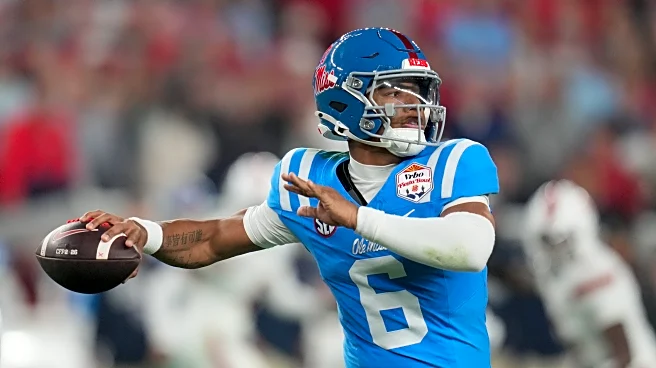What's Happening?
Jen Pawol is set to make history as the first female umpire in Major League Baseball's regular season. She will officiate three games in a series between the Miami Marlins and the Atlanta Braves, including both games of a doubleheader and the series finale.
Pawol has been umpiring at the Triple-A level since 2023 and has previously served as a home plate umpire for the Triple-A National Championship. Her journey began at Hofstra University, where she was a standout softball player, and continued through various levels of baseball officiating, including NCAA Division I postseason games and Big Ten Conference games. MLB Commissioner Rob Manfred praised Pawol's dedication and the example she sets for women aspiring to roles in sports officiating.
Why It's Important?
Jen Pawol's achievement is a significant milestone for gender equality in sports, particularly in the male-dominated field of baseball officiating. Her presence in MLB games challenges traditional gender roles and opens doors for more women to pursue careers in sports officiating. This development could inspire young girls and women to aim for similar roles, potentially increasing diversity and inclusion within the sport. MLB's recognition of Pawol's accomplishment highlights the league's commitment to promoting gender equality and supporting women in sports.
What's Next?
Following her historic debut, Pawol will continue to umpire MLB games as part of the Call-Up Umpire list, which includes 17 Triple-A umpires eligible to substitute in Major League games. Her future assignments may further solidify her role in MLB and encourage the league to consider more female umpires for regular season games. The impact of her achievement may lead to discussions on increasing female representation in other areas of professional sports.
Beyond the Headlines
Pawol's milestone may prompt broader conversations about gender equality in sports and the barriers women face in achieving high-level positions. Her success could influence policies and initiatives aimed at supporting women in sports, potentially leading to increased funding and resources for female athletes and officials. The cultural shift towards accepting women in traditionally male roles may extend beyond sports, affecting other industries and societal norms.

















